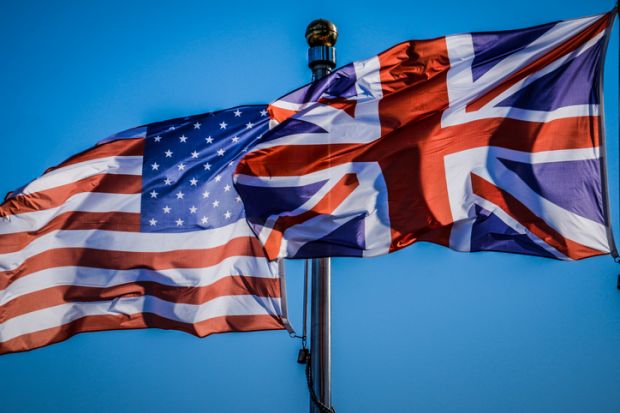The UK has fallen behind the US in a league table of the nations that educated the most serving world leaders who studied abroad.
Last year’s top two positions in the table, published by the Higher Education Policy Institute, were reversed, as the US edged out the UK with 58 leaders to 57.
France remained in third but performed more strongly this year, educating 40 world leaders, up six from 2017.
The rest of the top 10 was made up by Russia (10), Australia (9), Switzerland and Canada (5), Portugal (4), Austria (4) and in joint 10th Egypt, Germany, Lebanon, South Africa, Spain, India, Belgium, the Netherlands and Senegal (3).
The list of UK-educated leaders includes figures as diverse as Malcolm Turnbull, the Australian prime minister and University of Oxford graduate; Ana Brnabić, the Serbian prime minister and University of Hull graduate; King Tupou VI of Tonga, a University of East Anglia graduate; Viktor Orbán, the Hungarian prime minister and University of Oxford graduate; and Bashar al-Assad, the Syrian president who studied at the Western Eye Hospital, part of Imperial College Healthcare NHS Trust.
Nick Hillman, Hepi director, said: “You build up incredible soft power if you educate the leading lights of other countries. In the past, we [the UK] have been more successful than any other country in attracting the world’s future leaders. But these new figures suggest our position could be slipping.
“To ensure this does not become a long-term trend, we need to adopt a bold educational exports strategy, remove students from the main migration target and roll out the red carpet when people come to study here.
“One practical way to make all that happen would be to end the Home Office having complete control over student migration and to share it across government departments instead, as they do in other countries.”
Tom Huxley, an independent researcher who compiled the study for Hepi, said: “The government must take student numbers out of its migration target and allow our universities to attract more of the world’s best and brightest to study here. Otherwise, we are at risk of losing our strong links to future world leaders.”
Register to continue
Why register?
- Registration is free and only takes a moment
- Once registered, you can read 3 articles a month
- Sign up for our newsletter
Subscribe
Or subscribe for unlimited access to:
- Unlimited access to news, views, insights & reviews
- Digital editions
- Digital access to THE’s university and college rankings analysis
Already registered or a current subscriber? Login









